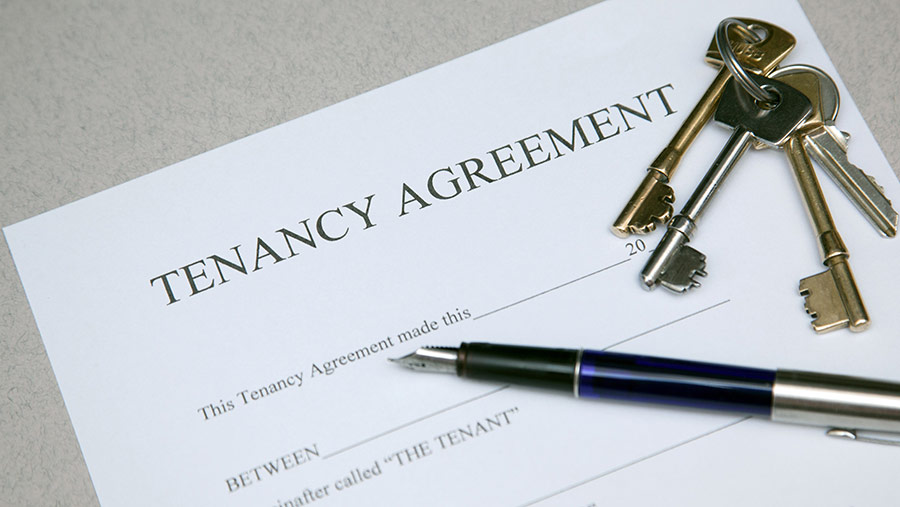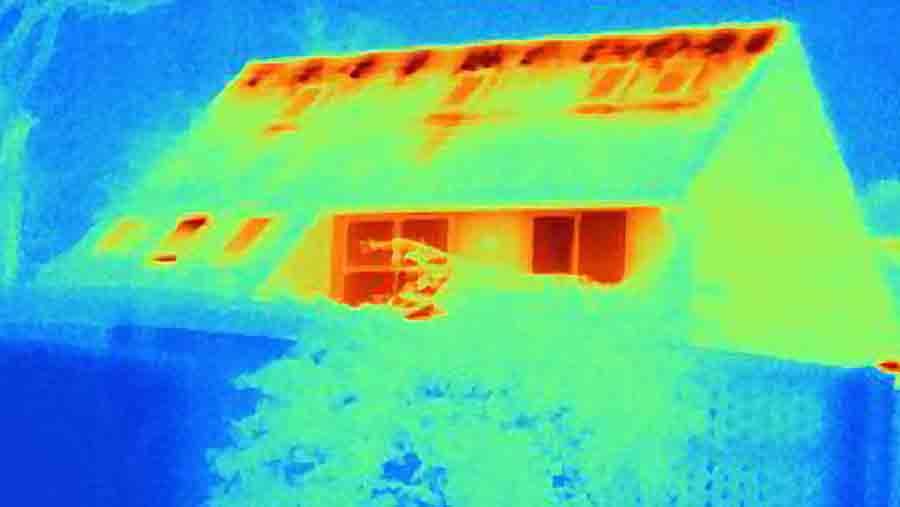Residential tenancy: New rules for rural landlords and tenants
Residential tenancy legislation is being overhauled, mainly with a view to further protect tenants’ rights.
Some areas are relatively easy to comply with, others have a potentially far greater impact on the landlord-tenant relationship, says Kate Russell, policy adviser at the Central Association of Agricultural Valuers (CAAV).
Some important changes were made to English tenancy legislation in 2015, with further upheaval to come this year.
See also: Keep holiday lets in farm business to claim property relief
Assured Shorthold Tenancy notice periods

©Jeff Blackler/Rex/Shutterstock
The main 2015 update is the introduction of prescribed legal requirements for section 21 notices, which have to be served to terminate an Assured Shorthold Tenancy.
“In the past all you had to do was make sure that the notice was in writing, but now the procedures are much more prescriptive, and if you don’t follow them properly it leaves the door open to challenge,” warns Mrs Russell.
For tenancies beginning after 1 October 2015, landlords may not serve an s.21 notice unless the tenant has been provided with:
- A free and valid Energy Performance Certificate (EPC)
- A copy of the gas safety certificate for the property
- A copy of the government’s guidance note: “How to Rent: A checklist for renting in England”
Mrs Russell advises asking tenants for receipts for these documents, to prevent them challenging a termination notice on these grounds at a later date.
Retaliatory eviction
This prevents serving of an s.21 notice if the tenant has complained in writing about the condition of the property, and the landlord has failed to respond within 14 days or has responded inadequately. The tenant must then have complained to the local housing authority, which can require the landlord to deal with the problem.
“I think we are going to see this causing problems if tenants suspect you want to get them out,” says Mrs Russell. “There are a lot of rural properties that are quite difficult to keep warm and dry, and I can see this causing issues if you have vexatious tenants.”
Smoke and carbon monoxide detectors

©Salom Gomis Sebastien/Sipa/Rex/Shutterstock
All landlords must ensure there is a smoke alarm on each storey and a carbon monoxide (CO) alarm in every room with a solid fuel burning appliance, including wood burning stoves, open fires and Agas.
This includes farmhouses let under Agricultural Holdings Act (AHA) tenancies or Farm Business Tenancies (FBT). Sub-let properties are the responsibility of the immediate landlord, which could be the farm tenant.
If a landlord fails to install the appropriate alarms, the local authority can serve notice giving the landlord 28 days to do the work. If landlord fails to comply, ultimately he could face a fine of up to £5,000.
Right to Rent
Since 1 February 2016, landlords must check that their tenants (and any adult living with them) have the legal right to rent in the UK. Penalties for failure to conduct proper right to rent checks include fines of up to £3,000.
Landlords or their agent must check original documents – like a passport or birth certificate – in the presence of the document holder, make copies and keep them for a year after the tenancy ends, says Mrs Russell.
Housing and Planning Bill – changes coming up
Currently before parliament, the Housing and Planning Bill seeks to tackle “rogue” landlords, and will include a database of blacklisted landlords and agents, banning orders to prevent them from letting properties, and rent repayment orders where they have committed certain offences.
“The Bill doesn’t specify the actions which would constitute an offence, but it’s likely to be threatening behaviour, unsafe housing, unfair rents and so on,” she explains.
Energy efficiency

©Cultura/Rex/Shutterstock
Some rural properties will struggle to comply with new rules governing energy efficiency improvements.
From 1 April 2016, a landlord cannot unreasonably refuse a tenant’s demand for energy efficiency improvements if they can be carried out without cost to the landlord.
“Perhaps more concerning is that from 1 April 2018, a domestic private rented property cannot be let on a new tenancy if it has an EPC of F or G.” The same will apply to existing tenancies – not just new ones – from 1 April 2020.
Where a property does not comply, landlords who have done everything they can to improve its energy efficiency (at no cost to themselves) can apply for a five-year exemption every five years.
“In due course the rules will also apply to commercial premises; a lot of landlords with large portfolios are selling off less energy efficient properties now as they don’t want the hassle of keeping them.”
